Dustin Yellin, a Brooklyn, N.Y.-based artist whose intricate 3D photomontages adorn the likes of New York’s Lincoln Center, wants to draw your gaze to climate change.

Not in a subtle way, either. He plans to stand an oil supertanker on its end in the ground—a structure soaring 1,000 feet into the air.
The Bridge, as Yellin dubs it, would repurpose a piece of energy infrastructure as a ready-made artwork, complete with elevators and a viewing platform for visitors, capturing the sheer scale of our energy system. The difficulty of hoisting thousands of tons of steel into the air would itself symbolize the monumental challenge of retooling our hydrocarbon-fueled civilization in the face of climate change.
The world depends on coal, oil, and natural gas for about four-fifths of its energy—just as it did when I was a boy. Back then, fears shaped by the 1970s centered on what would happen when our vital fuels ran out.
Our actual energy crisis turns out to be one of abundance, not scarcity. We’ve burned 1 trillion barrels of oil since 1980, yet global reserves are almost three times bigger. Natural gas is so plentiful that producers in Texas have been burning it off or even paying customers to take it off their hands. As for coal, the only thing many mines have run out of is jobs.
Carbon emissions are similarly inexhaustible, reaching a record last year. Abstract fears of “global warming” from the ’80s have morphed into the present danger of climate change. Rather than running out of hydrocarbons, we’re running out of time to deal with their pollution.
Our species struggles to grasp gradual change. Tell people the gas pumps have run dry, and they focus in an instant. Tell people their cars produce an invisible gas that will engender biblical droughts and floods—not necessarily where they live—and their attention drifts. Hence Yellin’s skyscraper-sized exclamation point.
Similarly, it’s hard for us to conceive of the end of the hydrocarbon era. And yet financial markets appear to be ahead of us on this.
Diese Geschichte stammt aus der August - September 2019-Ausgabe von Bloomberg Markets.
Starten Sie Ihre 7-tägige kostenlose Testversion von Magzter GOLD, um auf Tausende kuratierte Premium-Storys sowie über 8.000 Zeitschriften und Zeitungen zuzugreifen.
Bereits Abonnent ? Anmelden
Diese Geschichte stammt aus der August - September 2019-Ausgabe von Bloomberg Markets.
Starten Sie Ihre 7-tägige kostenlose Testversion von Magzter GOLD, um auf Tausende kuratierte Premium-Storys sowie über 8.000 Zeitschriften und Zeitungen zuzugreifen.
Bereits Abonnent? Anmelden
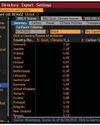
See Which Countries Are Falling Behind On Climate Change
Under the Paris Agreement, 190 countries and the European Union pledged to take steps to hold the global temperature rise to less than 2C (3.6F) from preindustrial levels—and preferably 1.5C.
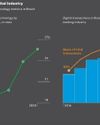
Billionaires Vie for the Future of Brazilian Finance
An escalating battle between two billionaires is upending the financial community in São Paulo, Latin America’s wealthiest city.
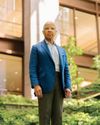
Ford Foundation's Darren Walker: ‘We Have to Get Uncomfortable'
DARREN WALKER, 62, disrupted his Wall Street life more than 25 years ago when he left what is now UBS Group AG to volunteer at a school and eventually pursue a career in community development and philanthropy. Since 2013 he’s been at the pinnacle of the philanthropic world as president of the Ford Foundation, created by the family of automaker Henry Ford during the Great Depression to advance human welfare.

Fueling the Ener Transition
I MAY BE BIASED, but some of the most important research and data on the Bloomberg terminal lies in one of its lesser-known functions: {BNEF }
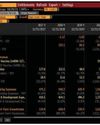
Dig Into Analysts' Estimates for Disruptive Companies
THE PANDEMIC ERA generated a whole wave of disruptive companies as it accelerated the introduction of new products and services in areas including artificial intelligence, digitization, electronic payments, online meeting platforms, and virtual currencies.
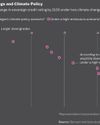
Climate Risks Come for Sovereign Credit
FOR YEARS climate scientists have warned about the ferocious wildfires and hurricanes that are now overwhelming many communities. Today alarms are ringing about a related financial danger: risks lurking within government bonds, the biggest part of the global debt market.

Responsible-Investing Pioneer Lydenberg Says ESG Needs An Upgrade
STEVE LYDENBERG’S passion for social change was inspired by anti-Vietnam War demonstrations, consumer boycotts, and the movement to divest from apartheid South Africa. But he didn’t take to the streets. Instead, Lydenberg turned to the world of finance to help catalyze societal change.

Engine No. 1's Grancio: ‘People Will Appreciate an Economic Argument'
ENGINE NO. 1 sent shock waves across corporate America in May when the fledgling investment firm won a boardroom battle with Exxon Mobil Corp., securing three seats on the oil and gas giant’s board after purchasing only about $40 million of its stock.
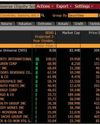
Find Out Which Companies May Ramp Up Payouts After Covid
AS THE PANDEMIC DISRUPTED business last year, many companies cut or suspended dividends. Which will boost their payouts when economies pick up again?
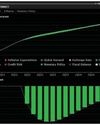
Get Into the Minds of Central Bankers as They Navigate Shocks
HAVE YOU EVER WONDERED how central bankers forecast the impact of shocks on the economy?